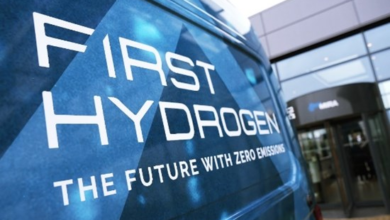8 Rivers announces technology breakthrough to develop ultra-low carbon hydrogen and ammonia

8 Rivers proudly announces a groundbreaking advancement in hydrogen technology that will revolutionize the production of ultra-low carbon hydrogen and ammonia.
This significant breakthrough marks a major milestone in our ongoing commitment to combat climate change and deliver a cleaner tomorrow, today.
The 8RH2 technology has been invented by Rodney Allam MBE, a chemical engineer from Bath in the UK, who also pioneered the Allam-Fetvedt-Cycle (AFC) cycle, the first new power cycle since World War II. 8RH2 harnesses advanced CO2 processes in a CO2 Convective Reformer (CCR), including some of the same processes pioneered in the AFC, building on decades of decarbonization expertise developed by 8 Rivers.
With 8RH2’s ability to capture greater than 99% of carbon emissions at a cost and scale currently unrivalled in the market, Allam’s groundbreaking hydrogen innovation promises to redefine what is possible for global decarbonization and, marks another remarkable milestone in his illustrious career as a visionary inventor.
While many carbon capture technologies target a 90-96% capture rate, the 8RH2 oxy-combustion process will eliminate virtually all direct CO2 emissions. Unlike standard hydrogen production, 8RH2 uses natural gas and pure oxygen and then utilizes the CO2 produced in the combustion process as a heat transfer medium in a proprietary reformer before sequestering the CO2.
8RH2‘s advanced process eliminates the need for costly amine or cryogenic-based CO2 separation processes that are normally required to capture CO2, as carbon separation is inherent to the process itself.
The ultra-low carbon hydrogen then can be turned into ultra-low carbon ammonia, which in turn can be used for decarbonized fertilizer, zero-carbon maritime fuels, and as a zero-carbon feedstock fuel to replace coal in existing power infrastructure. Ammonia is easily stored in bulk at modest pressures, has an existing global distribution network and is easier to transport than hydrogen. Ammonia can be easily ‘cracked’ back into hydrogen after reaching its end user.
8RH2-produced ammonia will provide a transportable low-carbon source of hydrogen, a low-cost and scalable solution to accelerate the global transition to net-zero.
Cam Hosie said, “At 8 Rivers, we are dedicated to accelerating the global transition to a sustainable energy landscape. This breakthrough in hydrogen technology is a testament to our commitment to innovation and environmental stewardship. We are excited to collaborate with partners and stakeholders to deploy the 8RH2 technology worldwide and to drive the transition to Net Zero on a global scale.”
